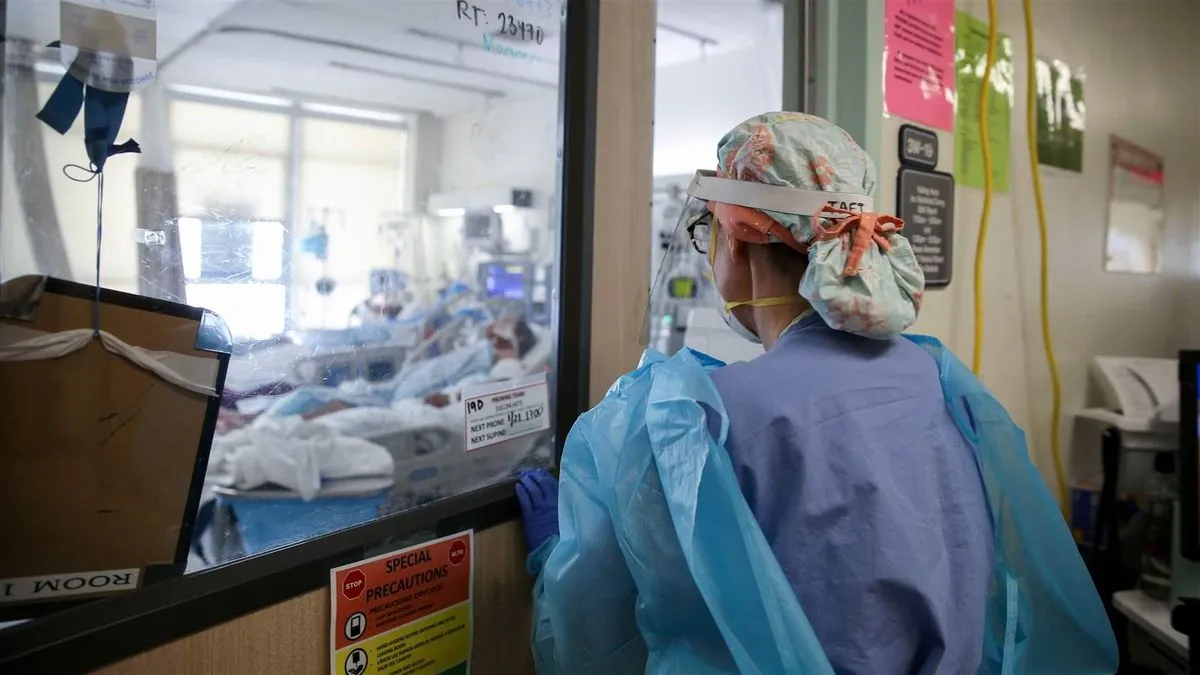Global AMR Crisis: 39 Million Deaths Projected by 2050, Study Warns
A new study predicts 39 million deaths from antibiotic-resistant infections by 2050. Older populations are at higher risk, with South Asia and sub-Saharan Africa expected to be heavily impacted.

A recent study published in The Lancet has revealed alarming projections regarding the global impact of antimicrobial resistance (AMR). Researchers forecast that over 39 million individuals could succumb to antibiotic-resistant infections between now and 2050, with a nearly 70% increase in fatalities expected from 2022 to 2050.
Christopher J. L. Murray, senior author and director of the Institute for Health Metrics and Evaluation at the University of Washington, emphasized the gravity of the situation, stating, "It's a big problem, and it is here to stay." This study, part of the Global Research on Antimicrobial Resistance Project, marks the first comprehensive analysis of AMR trends worldwide over time.
AMR occurs when microorganisms evolve to resist the effects of antimicrobial drugs, making infections more challenging to treat. The World Health Organization has identified AMR as one of the top 10 global public health threats facing humanity. This resistance not only complicates the treatment of common infections but also increases the risks associated with medical procedures such as chemotherapy and Caesarean sections.
The research team analyzed an extensive dataset of 520 million records from 204 countries, including hospital discharge records, insurance claims, and death certificates. Their findings indicate that over a million AMR-related deaths occurred annually between 1990 and 2021, with projections suggesting an acceleration of this trend.
Kevin Ikuta, a lead author and assistant professor of clinical medicine at UCLA, noted that the projected 39 million deaths over the next quarter-century equate to approximately three fatalities every minute. This sobering statistic underscores the urgent need for global action to address the AMR crisis.
The study revealed significant disparities in AMR's impact across age groups. While children under five experienced a more than 50% decrease in AMR deaths between 1990 and 2021, individuals aged 70 and older saw an increase exceeding 80%. Researchers predict that AMR deaths among children will continue to decline, potentially halving by 2050. However, they anticipate a doubling of such deaths among seniors during the same period.

Geographically, the burden of AMR is not evenly distributed. The study projects that approximately 11.8 million deaths—30% of the total forecast—will occur in South Asia. Sub-Saharan Africa is also expected to experience a significant number of AMR-related fatalities.
The primary driver of this crisis is the overuse and misuse of antibiotics, which exerts pressure on bacteria to develop resistance. To combat this issue, the authors advocate for antibiotic stewardship programs that balance improved access to antibiotics with measures to curb excessive use.
Ishani Ganguli, a primary care physician and associate professor of medicine at Harvard Medical School, emphasizes the importance of thorough patient evaluations and education to avoid unnecessary antibiotic prescriptions. She notes that antibiotics are often requested for viral infections like the common cold, against which they are ineffective.
"If there is a disconnect and the person I'm sitting with really wants an antibiotic … and I don't think it's going to help them in that case, I will more often turn to the ways in which it would hurt them"
In addition to antibiotic stewardship, the researchers recommend implementing infection prevention strategies, such as improving access to clean water and vaccines, and accelerating the development of new antibiotics.
The economic impact of AMR is substantial, with estimates suggesting it could cost the global economy up to $100 trillion by 2050. This underscores the need for immediate and coordinated action to address the crisis.
Murray emphasizes that tackling AMR requires a unified global effort: "You can't do this piecemeal. You really need a concerted global effort." This call for collaboration aligns with the "One Health" approach, which recognizes the interconnectedness of human, animal, and environmental health in addressing global health challenges like AMR.
As the world grapples with this growing threat, it is clear that combating AMR will require a multifaceted approach involving healthcare professionals, policymakers, and the public. By implementing effective strategies and fostering global cooperation, we can work towards mitigating the potentially devastating impact of antimicrobial resistance on public health worldwide.


































